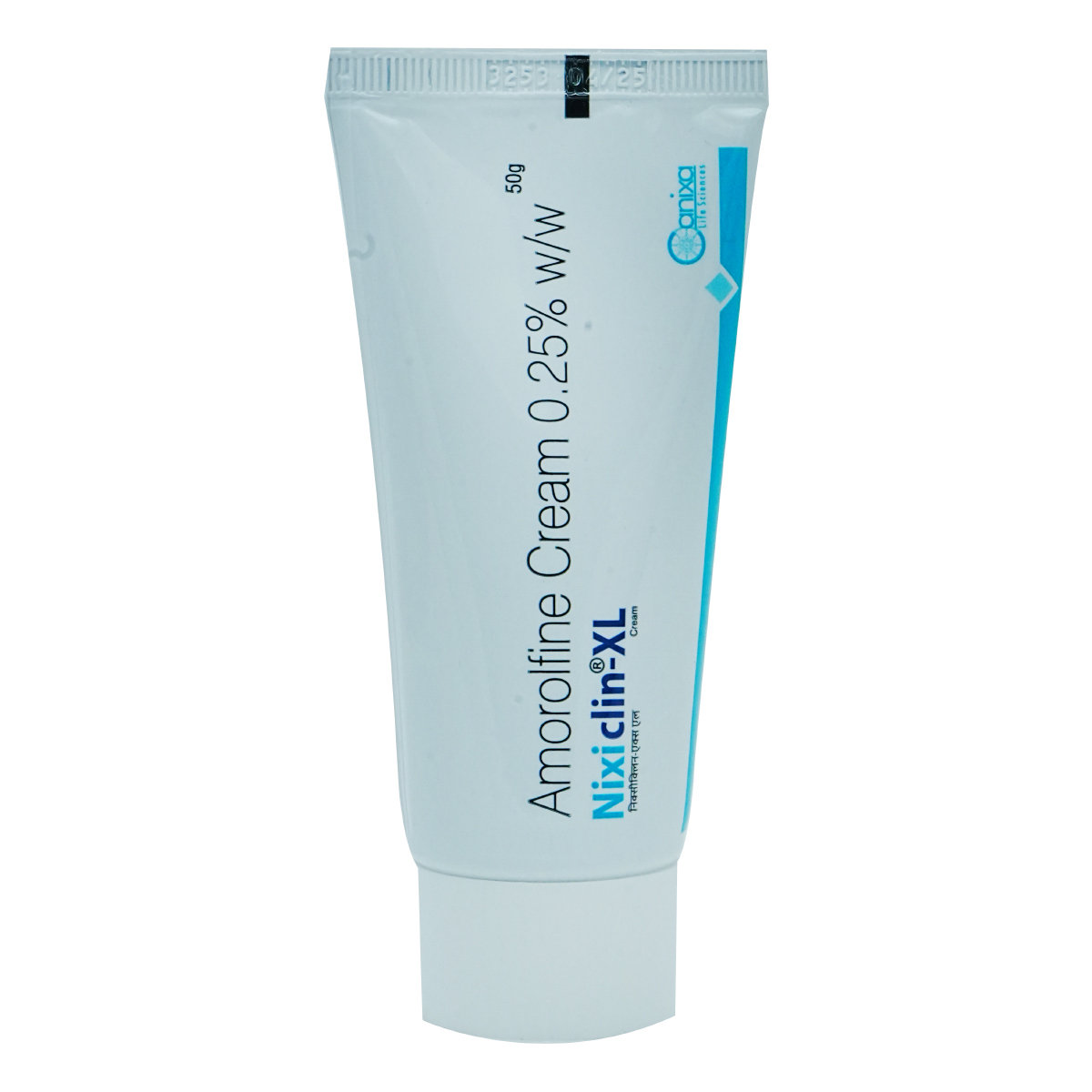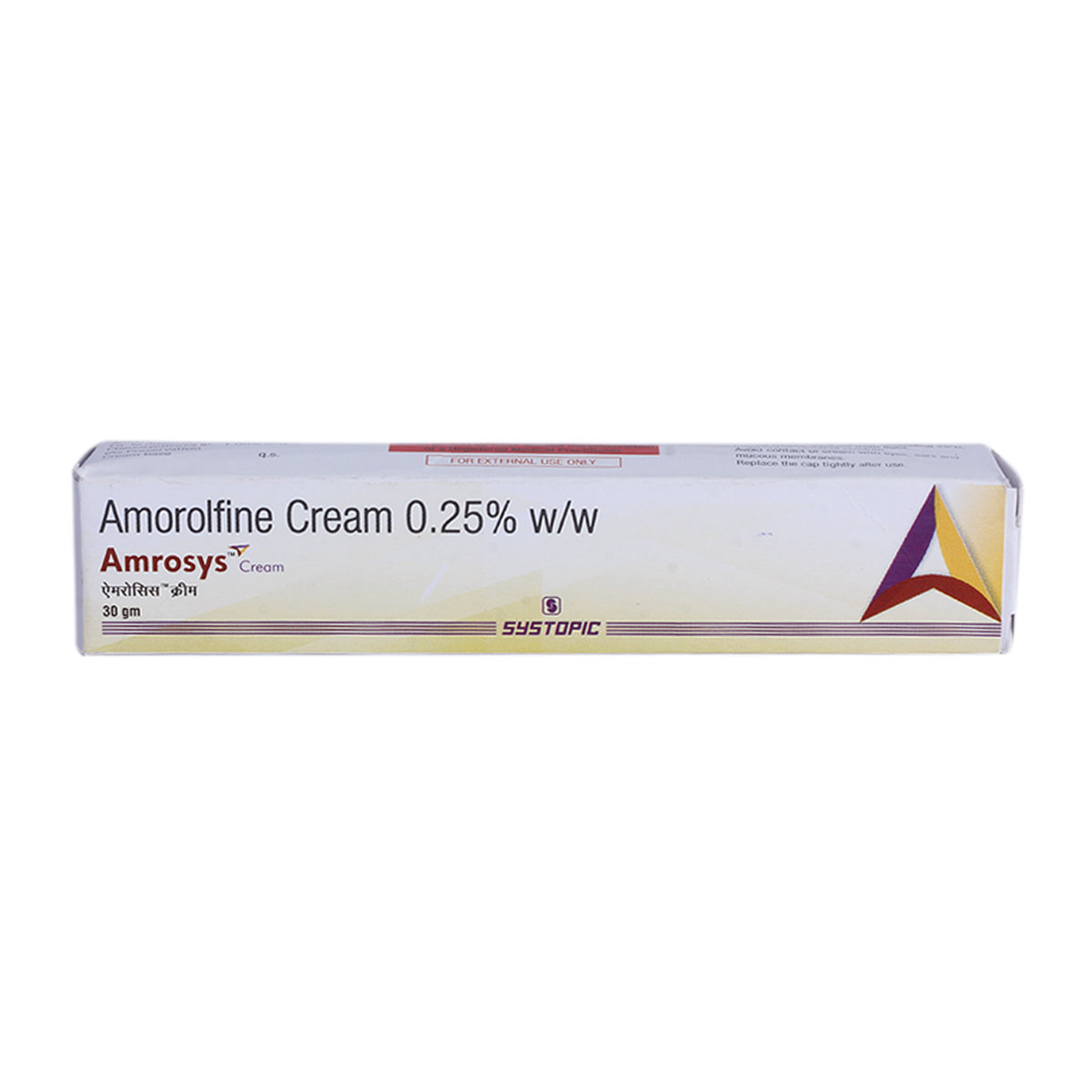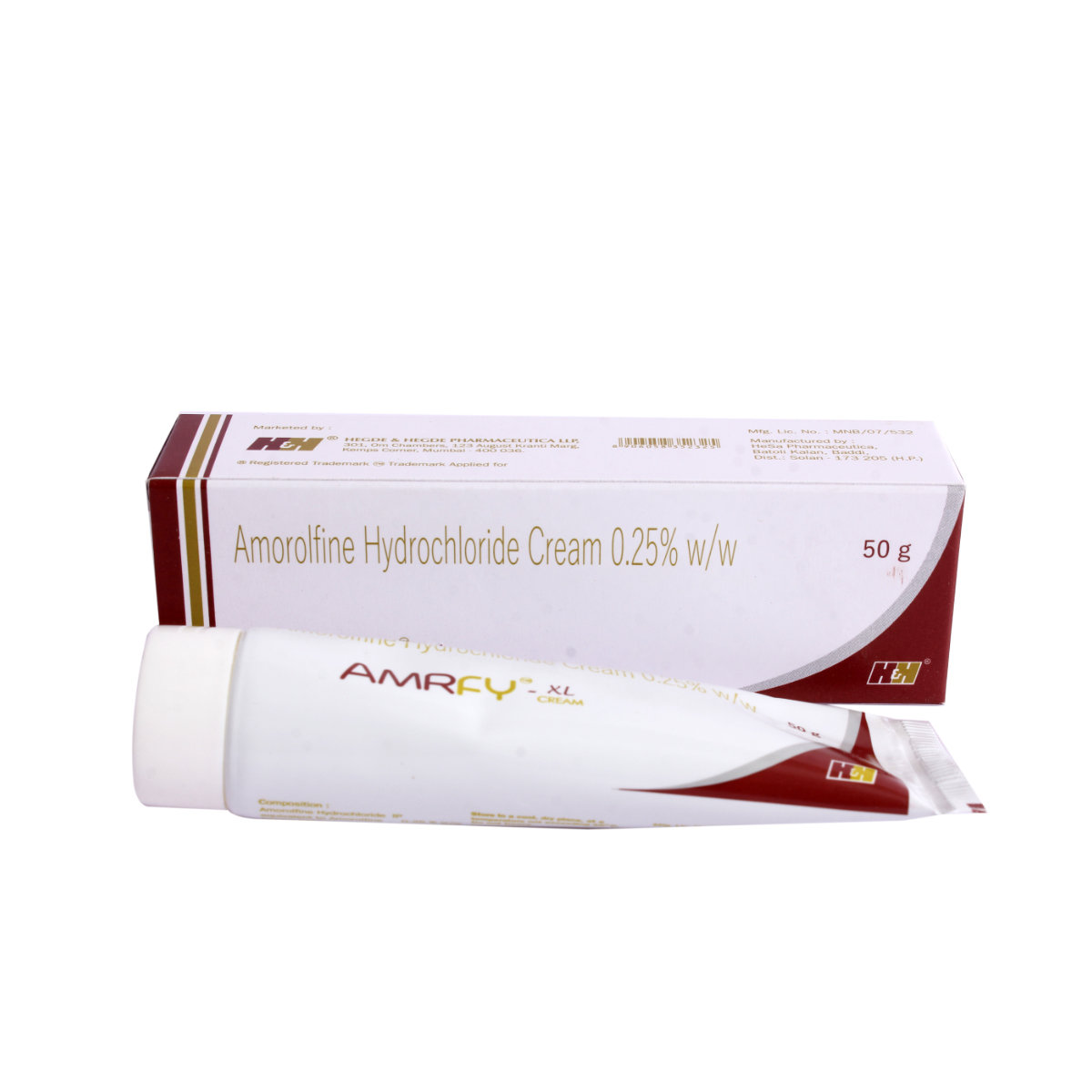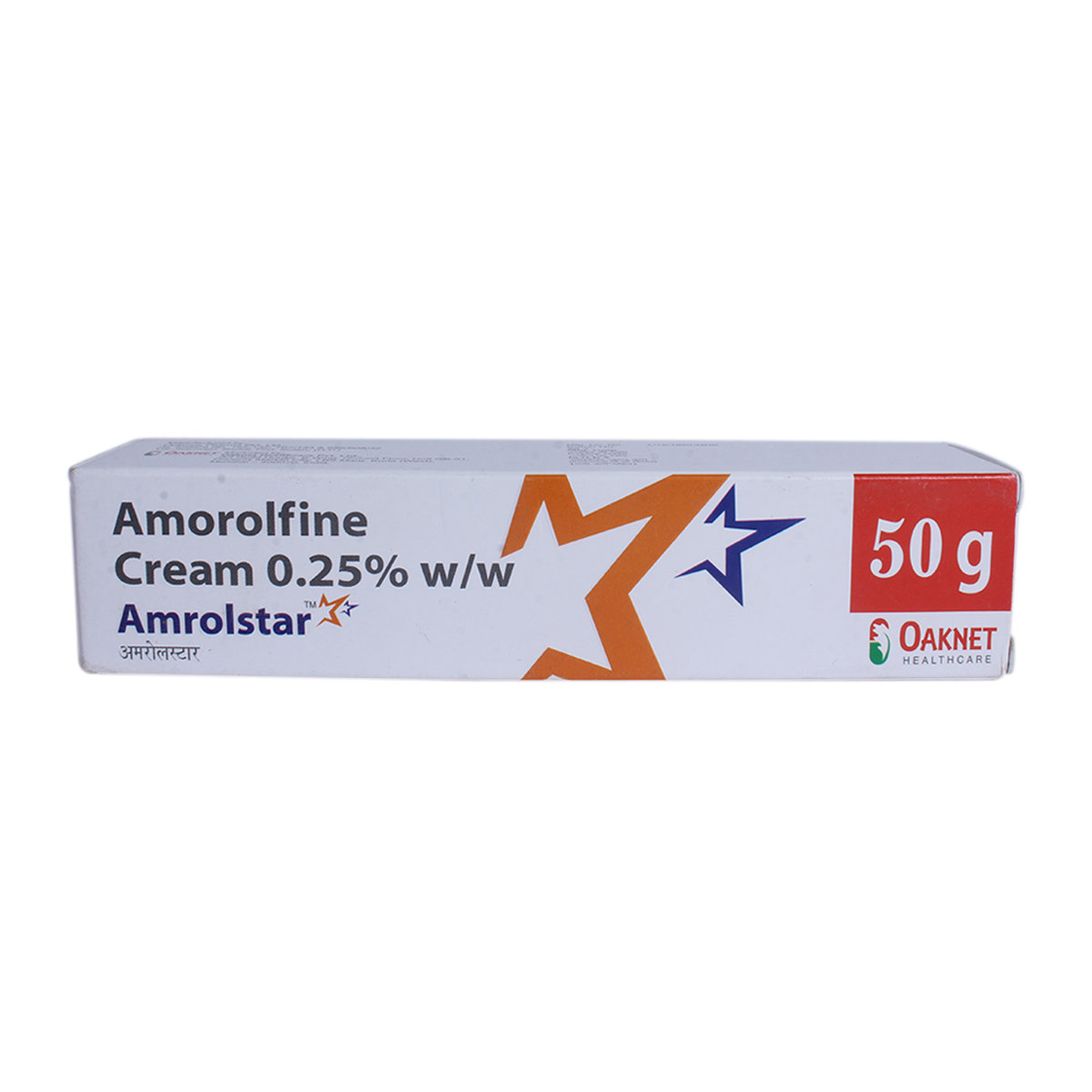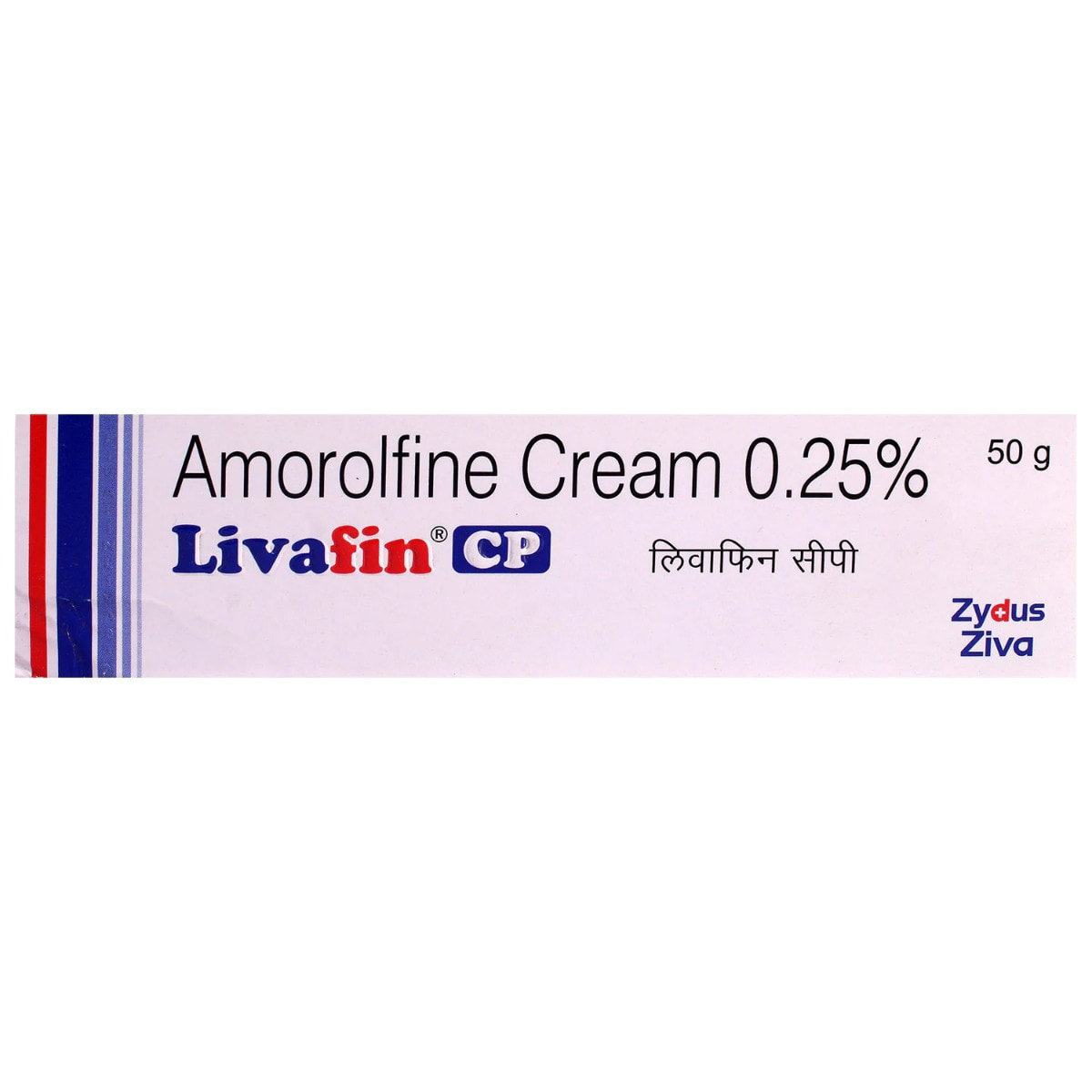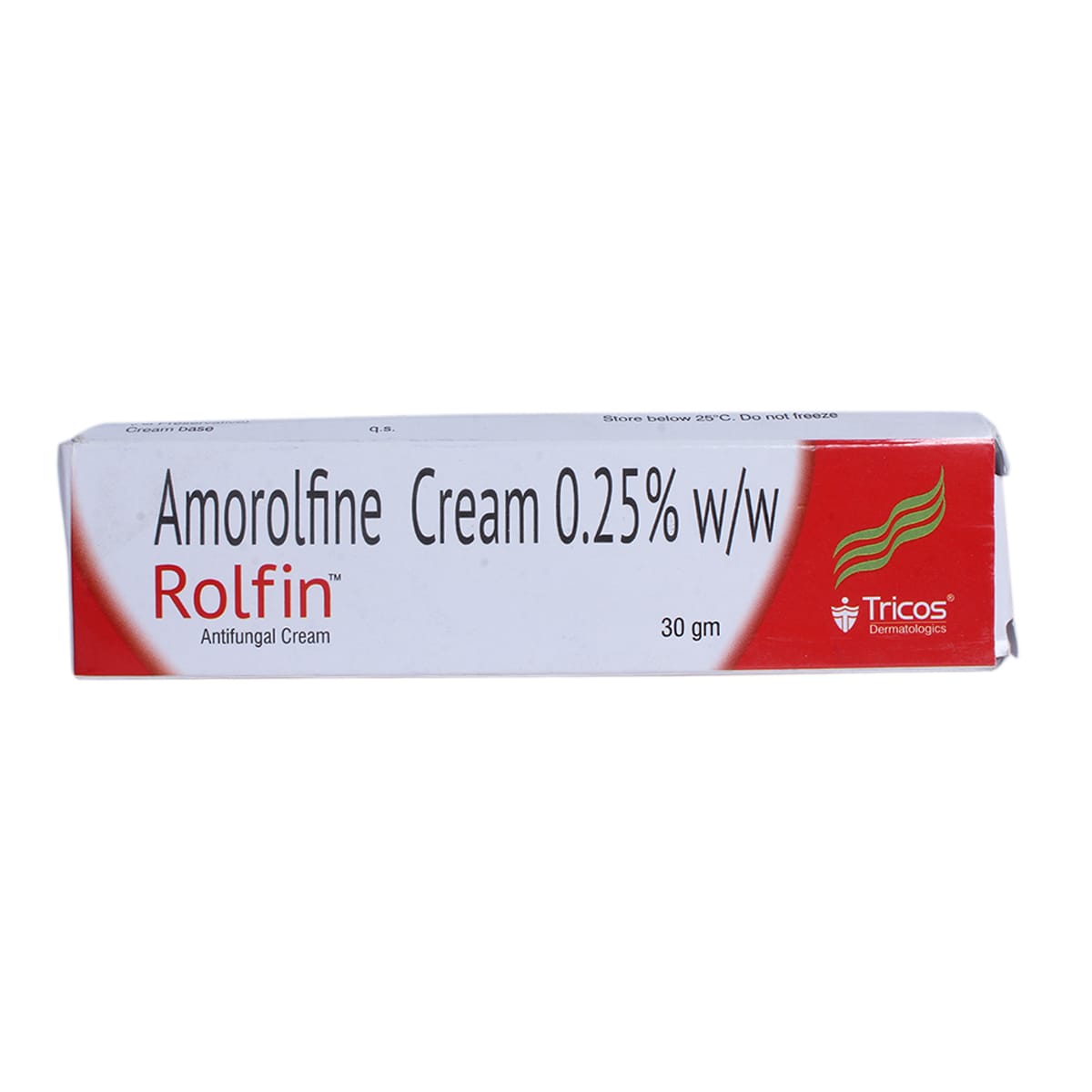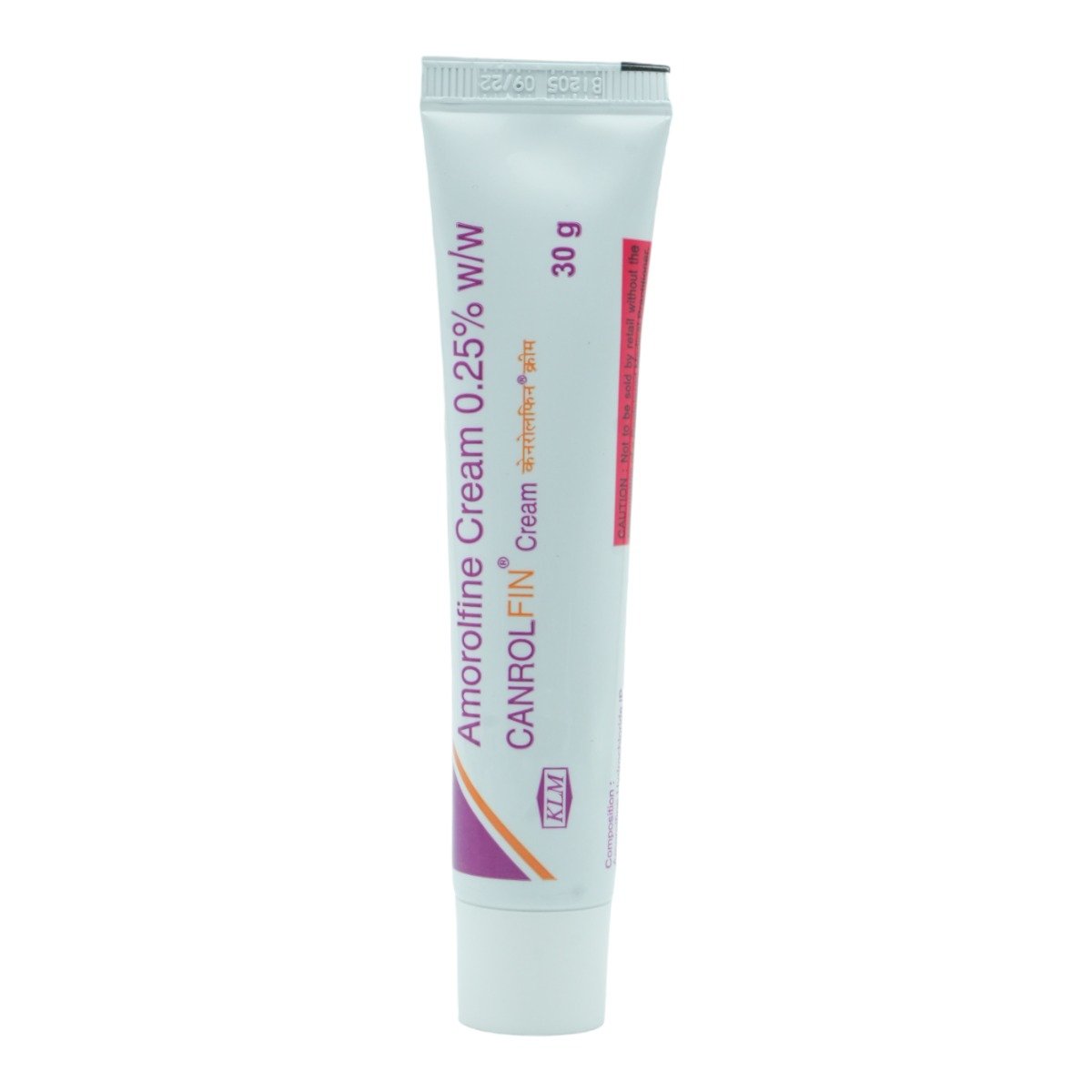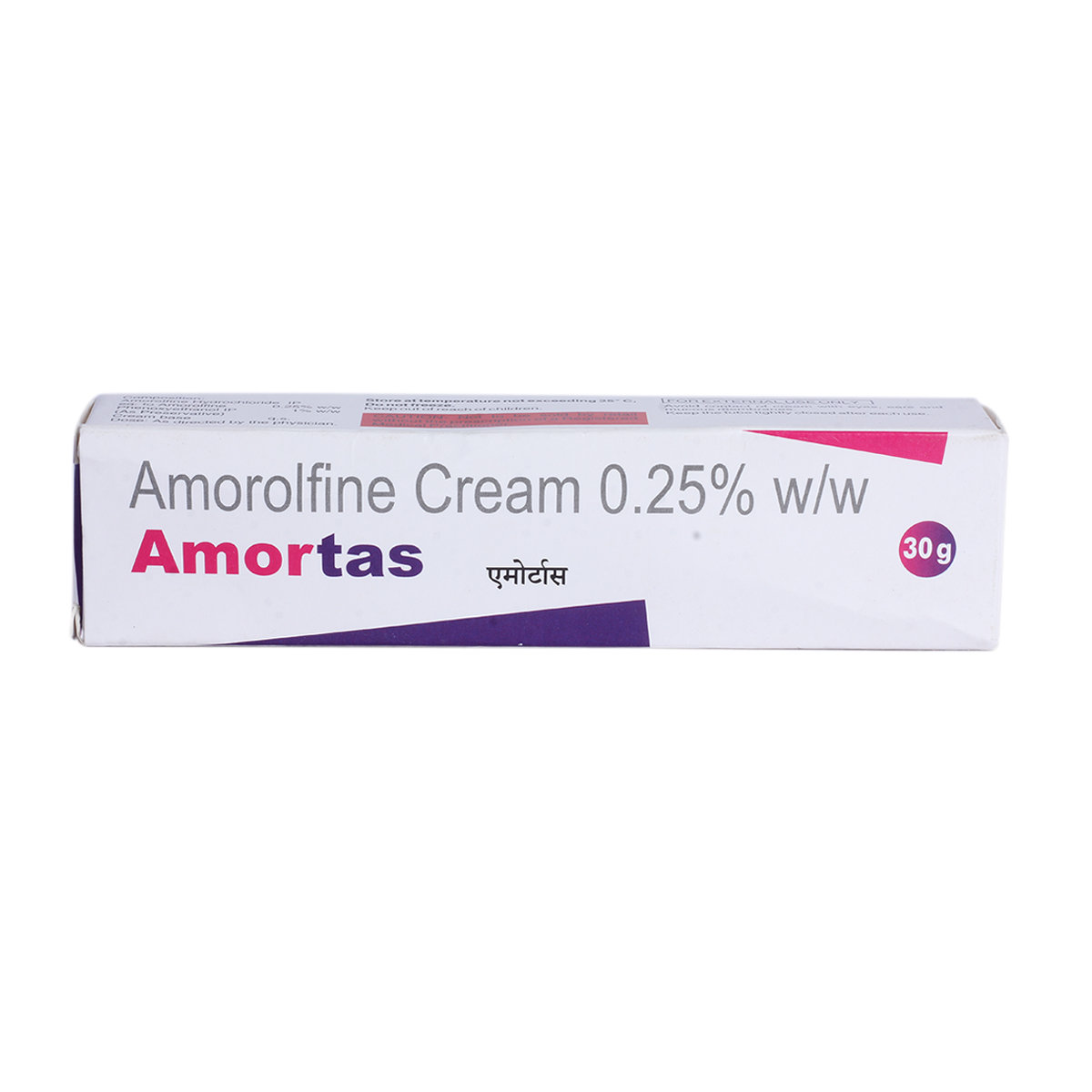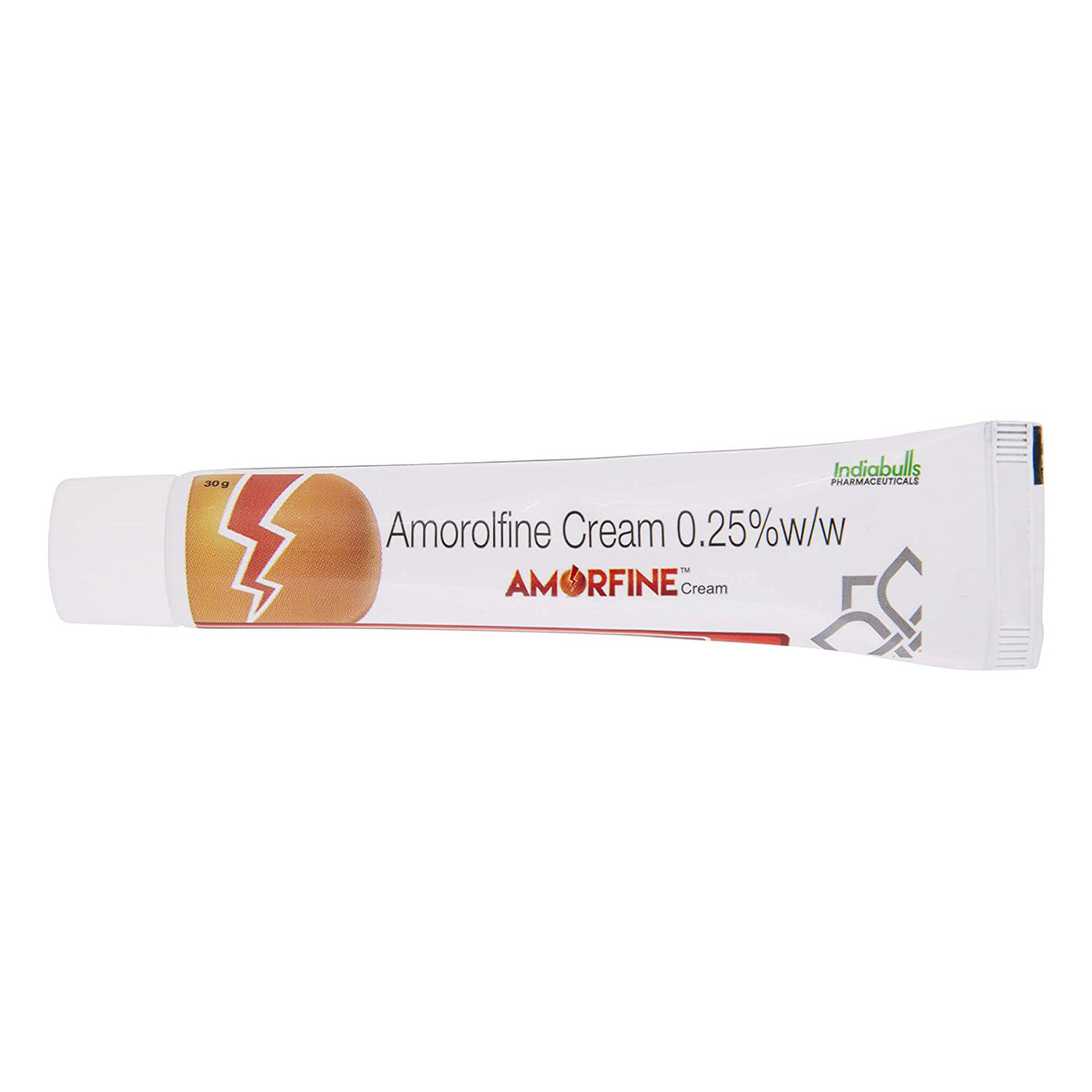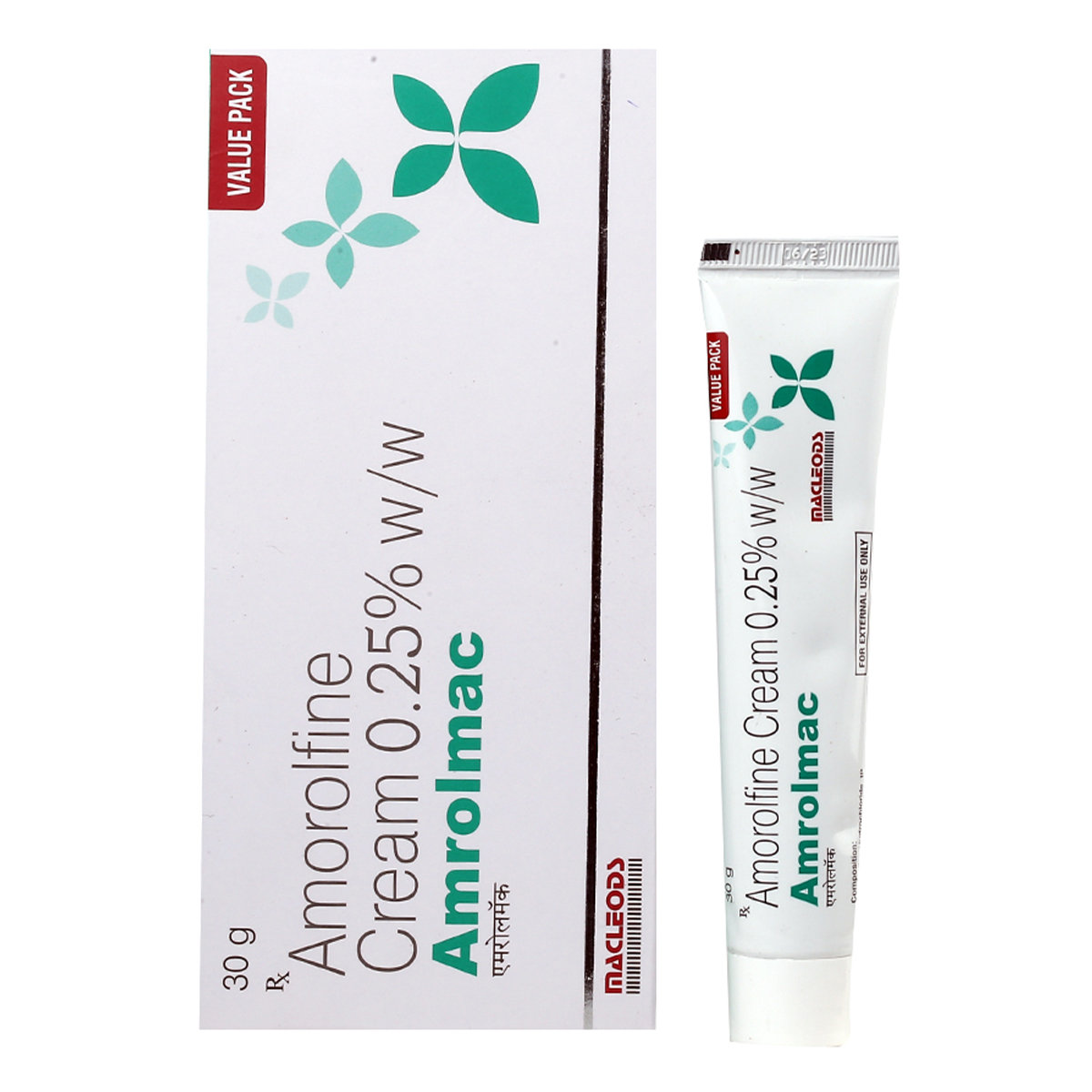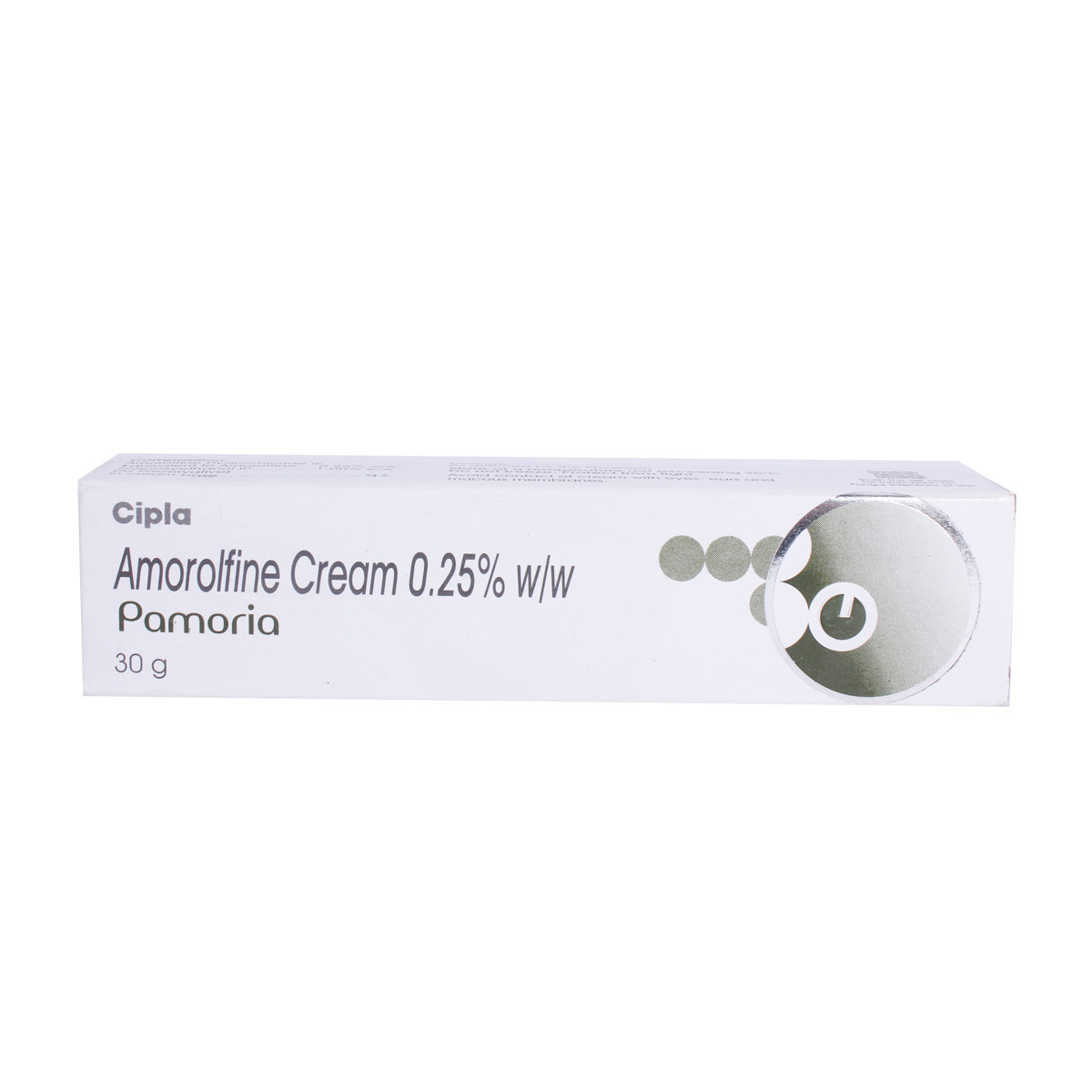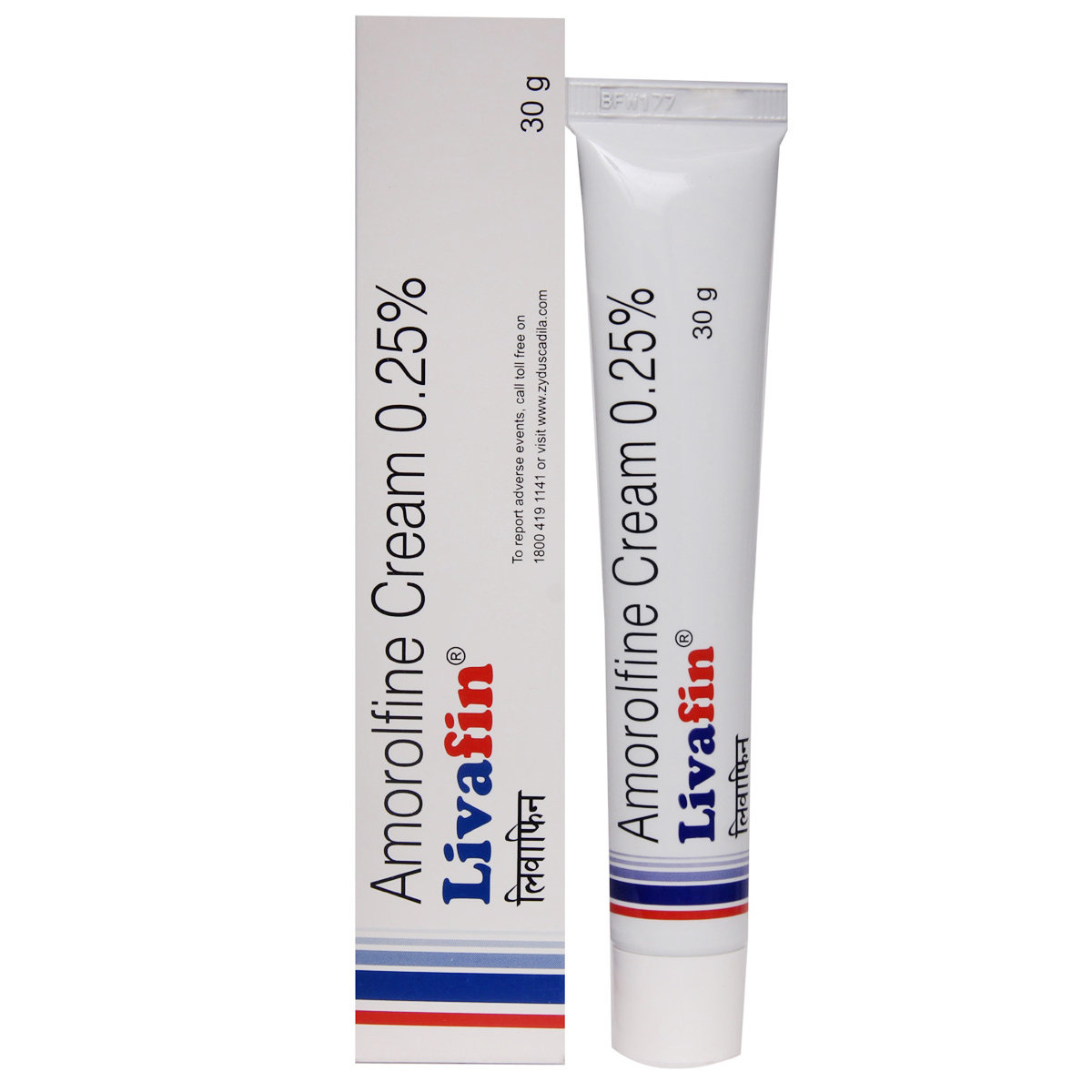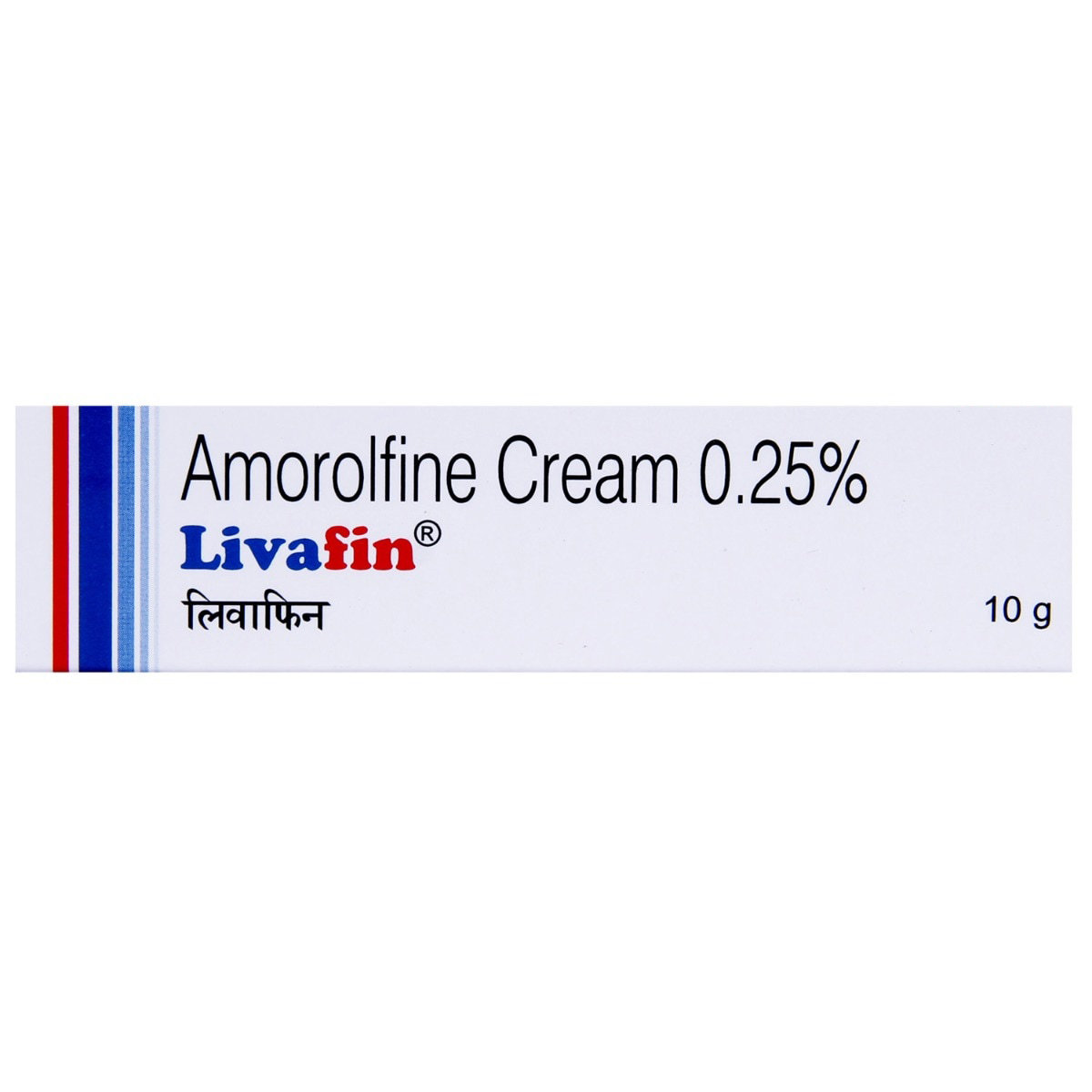Omyrol Cream


MRP ₹249
(Inclusive of all Taxes)
₹37.4 Cashback (15%)
About Omyrol Cream
Omyrol Cream belongs to a class of drugs called 'antifungal' primarily used to treat fungal nail infections. Fungal infection occurs when a fungus invades and affects the tissue on the skin. Symptoms of a fungal infection include skin rash, irritation, redness, and scaling of the skin.
Omyrol Cream contains 'Amorolfine' that works by stopping producing a chemical called 'ergosterol' in fungi that causes nail infection. Without ergosterol, the fungus cannot survive. As a result, infection-causing fungi die.
Use Omyrol Cream as suggested by your doctor. Common side effects of Omyrol Cream may include dry skin, itching, redness, or burning sensation of the skin. Most of these side effects of Omyrol Cream do not require medical attention and gradually resolve over time. However, if the side effects persist or worsen, please consult your doctor.
If you are pregnant or a nursing mother, it is advised to consult a doctor before using Omyrol Cream. If you use Omyrol Cream in topical form, avoid smoking or going near naked flames as Omyrol Cream catches fire and burns easily. If you are using any steroidal cream, lotion or ointment, inform your doctor before taking Omyrol Cream to adjust the dose.
Country of origin
Online payment accepted

Secure Payment

India's Most Trusted Pharmacy

Genuine Products
Composition :
Manufacturer/Marketer :
Consume Type :
Return Policy :
Available Offers
Provide Delivery Location
About Omyrol Cream
Omyrol Cream belongs to a class of drugs called 'antifungal' primarily used to treat fungal nail infections. Fungal infection occurs when a fungus invades and affects the tissue on the skin. Symptoms of a fungal infection include skin rash, irritation, redness, and scaling of the skin.
Omyrol Cream contains 'Amorolfine' that works by stopping producing a chemical called 'ergosterol' in fungi that causes nail infection. Without ergosterol, the fungus cannot survive. As a result, infection-causing fungi die.
Use Omyrol Cream as suggested by your doctor. Common side effects of Omyrol Cream may include dry skin, itching, redness, or burning sensation of the skin. Most of these side effects of Omyrol Cream do not require medical attention and gradually resolve over time. However, if the side effects persist or worsen, please consult your doctor.
If you are pregnant or a nursing mother, it is advised to consult a doctor before using Omyrol Cream. If you use Omyrol Cream in topical form, avoid smoking or going near naked flames as Omyrol Cream catches fire and burns easily. If you are using any steroidal cream, lotion or ointment, inform your doctor before taking Omyrol Cream to adjust the dose.
Uses of Omyrol Cream
Medicinal Benefits
Omyrol Cream is an antifungal that is primarily used to treat fungal infections of nails and skin such as ringworm, jock itch and athlete’s foot, seborrheic dermatitis (dry, flaky skin on face, scalp, chest, upper back, or ears) and pityriasis (a type of skin rash that causes scaly, discoloured patches on chest, back, legs and arms). The fungal cell membranes are essential for their survival as they prevent unwanted substances into the cells and stop the leakage of cell contents. Omyrol Cream causes holes in the fungal cell membranes and kills fungi. Thereby, clears fungal infection and provides relief from cracking, burning, scaling and itching of the skin caused due to infections.
Directions for Use
Storage
Side Effects of Omyrol Cream
- Itching
- Dry skin
- Redness
- Burning sensation of the skin
Drug Warnings
Before using Omyrol Cream, let your doctor know if you have a history of liver diseases, adrenal gland problems, cataract, glaucoma, diabetes or allergic reactions to any medicine ingredient. Let your doctor know if you plan to become pregnant or already pregnant and a lactating mother. Studies show that there may be harmful effects on the baby; hence Omyrol Cream should be used with caution in pregnancy under your doctor's supervision. If you apply Omyrol Cream to breasts or nipple for treatment, wash it off while nursing your baby. Omyrol Cream is for external use only, so avoid contact with the eyes, the mouth, or intravaginally. Notify the doctor if there is no improvement after one week of treatment for tinea cruris or tinea corporis or two weeks for tinea pedis. When using Omyrol Cream in the groin area, patients should use the medication for two weeks only. Prolonged use of Omyrol Cream may cause hormonal suppression, Cushing's syndrome, hyperglycemia (increased blood sugar level), and glucosuria (high sugar in urine) in some patients. Apply sunscreen (SPF 30 or higher) whenever you go outdoor in the sunlight.
Drug Interactions
Drug-Drug Interaction: Omyrol Cream may interact with respiratory-related medicines (budesonide, formoterol), drugs treating HIV/AIDS (ritonavir, cobicistat) and corticosteroids.
Drug-Food Interaction: No drug-food interactions found/established.
Drug-Disease Interaction: Omyrol Cream should not be given in patients with a history of allergic reactions to clotrimazole and betamethasone, have diabetes, liver diseases, cataract, glaucoma, adrenal gland problems, and hormonal problems.
Drug-Drug Interactions Checker List
- BUDESONIDE
- FORMOTEROL
- COBICISTAT
- RITONAVIR
Habit Forming
Diet & Lifestyle Advise
- Always wear loose-fitting clothes to avoid further sweat and spread of the fungal infection.
- In wet places such as changing rooms and gym showers, don’t walk on barefoot to prevent fungal infections.
- Regularly change your socks and wash your feet. Avoid shoes that make your feet sweaty and hot.
- Regularly change your socks and wash your feet. Avoid shoes that make your feet sweaty and hot.
- Do not walk barefoot at places like gym showers to prevent fungal infections.
- Do not scratch the affected area of skin as it can spread the infection to other body parts.
- Avoid sharing towels, combs, bedsheets, shoes or socks with others.
- Wash your bedsheets and towels regularly.
- Follow a candida diet if you suffer from vaginal yeast infection. Candida diet excludes high sugary foods, some dairy products and foods with artificial preservatives.
- Avoid or limit the intake of alcohol and caffeine.
Special Advise
It is advised to reach out to your doctor if the fungal infection symptoms persist or worsen after two treatment weeks. Before applying Omyrol Cream, clean and dry the affected area. Avoid contact of Omyrol Cream with nose, mouth or eyes. If Omyrol Cream comes in contact with these areas accidentally, rinse with water thoroughly. Do not wash the treated areas for a minimum of 3 hours after you apply Omyrol Cream.
Disease/Condition Glossary
Fungal infection is a skin disease in which a fungus attacks the tissue and cause infection. Fungal infections may be contagious (spread from one person to another). Ringworm is a common fungal infection of skin or scalp contagious and causes a rash resembling a worm in a ring shape. Jock itch (also known as tinea cruris) is a fungal infection of the skin that causes an itchy, red rash in warm and moist areas of the body such as the groin, buttocks, and inner thighs. Athlete’s foot (also known as tinea pedis) is a fungal infection that usually starts between the toes, especially in people who have extremely sweaty feet and wear tight-fitting shoes. It occurs most commonly in athletes. It causes itching, burning, or stinging sensation due to a scaly rash. Seborrheic dermatitis is a skin condition that causes an itchy rash with dry, flaky scales on the skin that contains oil glands such as the scalp, face, back, and upper chest. Fungal infection in nails happens when there is an overgrowth of fungi in, under, or on the nail. Fungal infections usually occur in toenails than fingernails, likely because toes remain under shoes, in a warm, moist environment.
FAQs
Omyrol Cream is safe to use with doctor’s advice and over a limited period (1-2 weeks). Let your doctor know if your symptoms are not relieved by then or experience any side effects.
Omyrol Cream consists of Amorolfine that should be used after consulting with doctor if a person has raised blood sugar levels (diabetes mellitus).
You are required to maintain at least a three-hour gap after application of Omyrol Cream if you are using more than one topical medicine.
No, do not stop taking Omyrol Cream on your own even if the symptoms are relieved until your course advised by the doctor is finished.
There is limited data on how Omyrol Cream affects breastfeeding. Please consult your doctor before starting Omyrol Cream. However, if nursing mothers apply Omyrol Cream to their breasts for treatment, it is advised to wash the affected area thoroughly before breastfeeding the baby.
Omyrol Cream contains 'Amorolfine' that works by stopping producing a chemical called 'ergosterol' in fungi that causes nail infection. Without ergosterol, the fungus cannot survive. As a result, infection-causing fungi die.
Omyrol Cream is for topical (for skin) use only. Do not put bandage or dressing on the affected area while treating with Omyrol Cream unless the doctor advised. If the medicine gets into your eyes, nose, mouth or vagina, rinse with cold water. Do not apply Omyrol Cream on open wounds, lesions and blisters.
Omyrol Cream, when used for longer periods, can cause thinning and weakening of the skin. Please stop using Omyrol Cream and immediately consult your doctor if you notice these symptoms.
Yes, fungal infection is a contagious skin condition which spreads from one person to another through direct skin to skin contact or by contact with contaminated soil or surfaces and infected animals. Therefore, it is recommended to avoid close direct contact until the infection is clear and avoid sharing things with the infected person as it can also spread the infection.
You are recommended to apply makeup or sunscreen to the treated area of skin after a minimum of 20 minutes of using Omyrol Cream.
You are recommended to use Omyrol Cream for as long as your doctor has prescribed it. However, if the condition worsens or persists after 2 to 4 weeks of treatment with Omyrol Cream, please consult a doctor.
Disclaimer
Product Substitutes
Alcohol
Safe if prescribed
No interaction found/ established. Please consult your doctor before using Omyrol Cream.
Pregnancy
Caution
Omyrol Cream is Category C pregnancy drug and is given to a pregnant woman only if the doctor thinks benefits outweigh risks.
Breast Feeding
Unsafe
There is limited data on how Omyrol Cream affects breastfeeding. Please consult your doctor before starting Omyrol Cream. However, if nursing mothers apply Omyrol Cream to their breasts for treatment, it is advised to wash the affected area thoroughly before breastfeeding the baby.
Driving
Safe if prescribed
Omyrol Cream does not influence on the ability to drive or use machines.
Liver
Caution
If you have any concerns regarding the use of Omyrol Cream in patients with Liver problems, please consult a doctor.
Kidney
Safe if prescribed
Omyrol Cream is safe for patients with kidney disease if prescribed by a doctor.
Children
Safe if prescribed
Omyrol Cream is to be used on children below 12 years of age only when prescribed by the doctor.
Uses of Omyrol Cream
Medicinal Benefits
Omyrol Cream is an antifungal that is primarily used to treat fungal infections of nails and skin such as ringworm, jock itch and athlete’s foot, seborrheic dermatitis (dry, flaky skin on face, scalp, chest, upper back, or ears) and pityriasis (a type of skin rash that causes scaly, discoloured patches on chest, back, legs and arms). The fungal cell membranes are essential for their survival as they prevent unwanted substances into the cells and stop the leakage of cell contents. Omyrol Cream causes holes in the fungal cell membranes and kills fungi. Thereby, clears fungal infection and provides relief from cracking, burning, scaling and itching of the skin caused due to infections.
Directions for Use
Storage
Drug Warnings
Before using Omyrol Cream, let your doctor know if you have a history of liver diseases, adrenal gland problems, cataract, glaucoma, diabetes or allergic reactions to any medicine ingredient. Let your doctor know if you plan to become pregnant or already pregnant and a lactating mother. Studies show that there may be harmful effects on the baby; hence Omyrol Cream should be used with caution in pregnancy under your doctor's supervision. If you apply Omyrol Cream to breasts or nipple for treatment, wash it off while nursing your baby. Omyrol Cream is for external use only, so avoid contact with the eyes, the mouth, or intravaginally. Notify the doctor if there is no improvement after one week of treatment for tinea cruris or tinea corporis or two weeks for tinea pedis. When using Omyrol Cream in the groin area, patients should use the medication for two weeks only. Prolonged use of Omyrol Cream may cause hormonal suppression, Cushing's syndrome, hyperglycemia (increased blood sugar level), and glucosuria (high sugar in urine) in some patients. Apply sunscreen (SPF 30 or higher) whenever you go outdoor in the sunlight.
Therapeutic Class
Drug-Drug Interactions
Drug-Drug Interactions
Login/Sign Up
Drug-Drug Interactions Checker List
- BUDESONIDE
- FORMOTEROL
- COBICISTAT
- RITONAVIR
Diet & Lifestyle Advise
- Always wear loose-fitting clothes to avoid further sweat and spread of the fungal infection.
- In wet places such as changing rooms and gym showers, don’t walk on barefoot to prevent fungal infections.
- Regularly change your socks and wash your feet. Avoid shoes that make your feet sweaty and hot.
- Regularly change your socks and wash your feet. Avoid shoes that make your feet sweaty and hot.
- Do not walk barefoot at places like gym showers to prevent fungal infections.
- Do not scratch the affected area of skin as it can spread the infection to other body parts.
- Avoid sharing towels, combs, bedsheets, shoes or socks with others.
- Wash your bedsheets and towels regularly.
- Follow a candida diet if you suffer from vaginal yeast infection. Candida diet excludes high sugary foods, some dairy products and foods with artificial preservatives.
- Avoid or limit the intake of alcohol and caffeine.
Habit Forming
Side Effects of Omyrol Cream
- Itching
- Dry skin
- Redness
- Burning sensation of the skin
Special Advise
It is advised to reach out to your doctor if the fungal infection symptoms persist or worsen after two treatment weeks. Before applying Omyrol Cream, clean and dry the affected area. Avoid contact of Omyrol Cream with nose, mouth or eyes. If Omyrol Cream comes in contact with these areas accidentally, rinse with water thoroughly. Do not wash the treated areas for a minimum of 3 hours after you apply Omyrol Cream.
Disease/Condition Glossary
Fungal infection is a skin disease in which a fungus attacks the tissue and cause infection. Fungal infections may be contagious (spread from one person to another). Ringworm is a common fungal infection of skin or scalp contagious and causes a rash resembling a worm in a ring shape. Jock itch (also known as tinea cruris) is a fungal infection of the skin that causes an itchy, red rash in warm and moist areas of the body such as the groin, buttocks, and inner thighs. Athlete’s foot (also known as tinea pedis) is a fungal infection that usually starts between the toes, especially in people who have extremely sweaty feet and wear tight-fitting shoes. It occurs most commonly in athletes. It causes itching, burning, or stinging sensation due to a scaly rash. Seborrheic dermatitis is a skin condition that causes an itchy rash with dry, flaky scales on the skin that contains oil glands such as the scalp, face, back, and upper chest. Fungal infection in nails happens when there is an overgrowth of fungi in, under, or on the nail. Fungal infections usually occur in toenails than fingernails, likely because toes remain under shoes, in a warm, moist environment.

Have a query?



